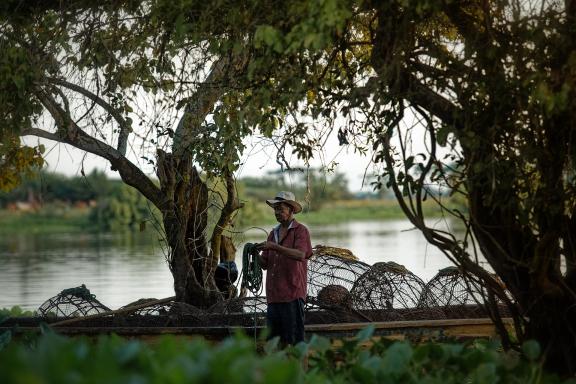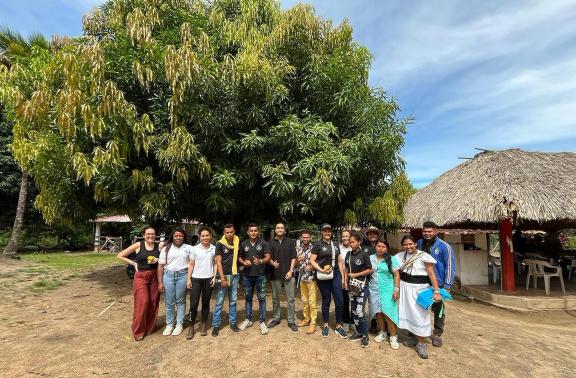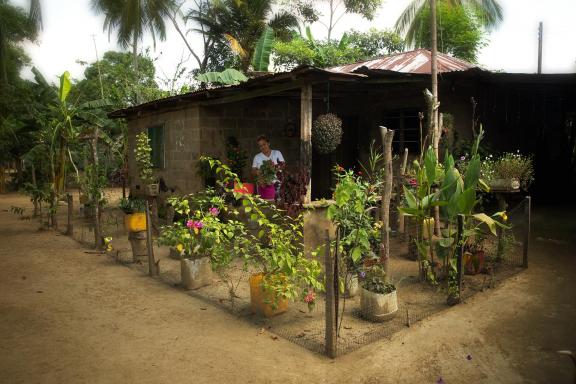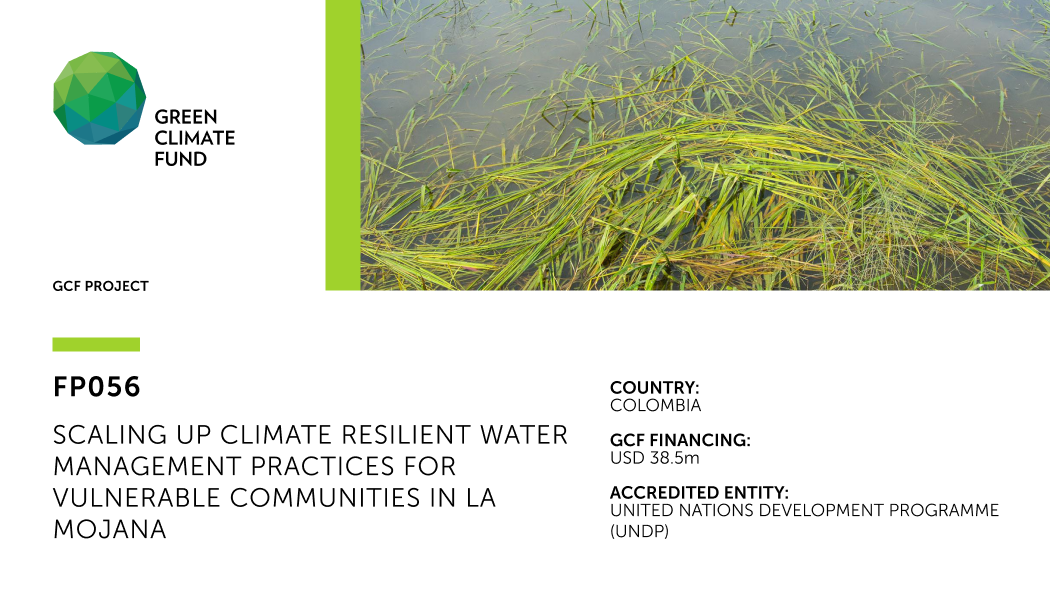In the north of Colombia, in a region called La Mojana, three of the country’s most important rivers meet: the San Jorge, the Cauca and the Magdalena.
The junction forms part of one of the world’s largest wetlands, a beating heart regulating the flow of water along the rivers’ interconnected arteries, supporting an array of ecosystems integral to local livelihoods and culture.
For more than 2,000 years, this rich, green landscape was etched with canals, ridges and embankments built by the Zenú. Their sophisticated engineering - altogether considered one of the largest hydraulic complexes in the Americas - supported water management, agricultural productivity, and flood control.
Today, while the immense beauty of the wetlands endures, much of the Zenú's intricate hydraulic system has since been lost, the natural water flows disrupted by modern-day constructions such as dykes. The region is seeing more prolonged dry periods and more intense episodes of flooding as a result of stronger and more unpredictable La Niña and El Niño weather patterns.
The changes have severely compromised the wetlands' ability to manage water, directly affecting the livelihoods, health, and economy of Indigenous Peoples and local communities in the region.

Farmer in La Mojana wetlands, a unique network of wetlands in northern Colombia that is threatened by climate change. Photo: Andrés Estefan/UNDP Colombia
‘Mojana: Climate and Life’
Under the ‘Mojana: Climate and Life’ programme, efforts are now being made to restore and adapt traditional water management techniques, integrating them with contemporary approaches to build resilience against the impacts of climate change.
Embracing a local approach to adaptation, one of the programme's successes has been in raising awareness around the importance of wetland ecosystems and ways of life which foster a harmonious relationship with the environment.
The National Indigenous Organization of Colombia (Organización Nacional Indígena de Colombia, ONIC) has been an instrumental partner to the project and in consultation with communities has been supporting Indigenous-led efforts to rescue traditional knowledge and practices.
Aimed at improving the resilience of vulnerable communities during prolonged flood and drought seasons, the ‘Mojana: Climate and Life’ programme is rehabilitating ecosystems while establishing flood early warning systems and promoting productive agricultural systems adapted to the changing climate. Launched in 2018, it aims to benefit around 400,000 people, including the entire rural population of La Mojana, and to restore around 40,000 hectares of wetlands in Bolivar, Sucre, Cordoba and Antioquia.

Students of the Revitalization of Mother Earth programme. Photo: Andrés Estefan/UNDP Colombia
Honouring Indigenous wisdom
A key concern of Indigenous leaders has been ensuring the transmission of Indigenous knowledge and information among young people. This has led to ongoing work with 24 Zenú children's schools, promoting ecosystem conservation, environmental stewardship and socio-ecological restoration processes.
Under the project, the Autonomous Indigenous Intercultural University of Cauca (UAIIN) has led the development of a training process recognizing the ancestral relationship of the Zenú with Mother Earth and supporting young people in identifying the elements that will contribute to the revitalization of the region today.
“Climate change has been creating a general imbalance, and that is why it is necessary to return to balance and harmony, generate awareness about what is happening around climate change, and be protectors and safeguards of our mother [Earth].”
At the heart of the “Revitalization of Mother Earth” undergraduate programme are the students' own pedagogical, scientific and technological processes: to graduate, each must research and develop a “CRISSAC” (Cultivation, Nurturing of Wisdom and Knowledge), in turn informing the design of solutions to the challenges La Mojana faces today. Twenty Zenú students, including 11 women, are on track to complete the 5-year programme with UAIIN by 2026.

Through the food gardens, each family guarantees the largest possible number of plant species/varieties on their land (at least 80), providing resilience when there is both too much or too little water. Photo: Andrés Estefan/UNDP Colombia
The project has also been working with the Alexander Von Humboldt Institute, Paisajes Rurales and the University of Cordoba to train young Zenú in developing their own plant nurseries and in the rescue of native seed varieties.
Households are supporting the rescue of native seed varieties and crops by establishing biodiverse climate-resilient food gardens. The gardens are proving a critical tool in supporting food sovereignty in the face of climate change.
“The revitalization programme helps us with traditional knowledge and cultural practices; it invites us to be custodians of diversity.”

Julio Montes, student of the Mother Earth Revitalisation programme. Photo: Andrés Estefan/UNDP Colombia
Zenú Life Plan: A plan for the future
All this work has come together in the Zenú Life Plan.
Formulated in consultation with more than 300 community members, the plan serves the community as a strategic planning tool created by and for Indigenous communities, contributing to climate change management.
It is based on the cosmovision, history and needs of the Zenú while aiming to define a vision of the future for the community, and the strategies to achieve it.

The revitalization of the region's wetlands is not just restoring nature but ensuring the long-term sustainability and prosperity of communities. Photo: Andrés Estefan/UNDP Colombia
A sustainable vision for La Mojana
By integrating ancient Zenú water management techniques with modern climate resilience strategies, the "Mojana: Climate and Life" programme is setting a precedent for sustainable development.
The revitalization of the region's wetlands is not just restoring nature but ensuring the long-term sustainability and prosperity of communities; forging new model for climate-resilient development in which people and the planet thrive.
The ‘Mojana: Climate and Life’ programme is implemented by Colombia’s Fondo Adaptación (Adaptation Fund), Ministry of the Environment and UNDP, with funding from the Green Climate Fund. Learn more.
